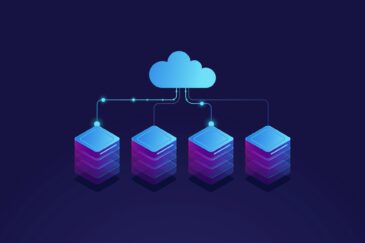OCI is based on the latest cloud technologies and standards and provides more consistent performance and advanced features at lower costs. OCI allows you to provision resources in specific localized regions and can support the addition of new regions. Here are a few key benefits of moving your applications and workloads to OCI.
The consultants provided by the service provider should have experience in Oracle ERP Cloud Implementations of similar scope and size to the one your organization is undertaking. Deploying Oracle ERP Cloud in 25 countries to serve 200,000 employees demands different capabilities and resources than smaller projects. The service provider must be fully equipped to address the demands of highly regulated industries or other unique factors that need particular expertise. You can request to interview current and former customers who embarked on similar Oracle ERP Implementations with the service provider.
Evaluate your Oracle ERP Cloud Service provider’s capabilities to support Day 2 operations. They include routine maintenance activities and continuous support for the Oracle ERP Cloud environment, which take place post-provisioning. Your service provider should be able to continuously support and optimize Day 2 operations, which is crucial in delivering the best outcomes for your organization.
Finance modernization is often an essential aspect of ERP implementations for business process transformation. Your Oracle ERP Cloud Service provider must have strong domain expertise and experience in Oracle ERP Cloud strategy and consulting to achieve the desired outcomes. Adopting best-practice implementation methodologies and data-driven processes can support digital initiatives and accelerate the project. For complex initiatives that need advanced expertise, evaluate the ability of the service provider to design solutions through a proof of concept.
Oracle ERP Cloud provides the flexibility to adapt to each customer’s unique needs through various configuration options. Service providers must be able to guide enterprises through the correct configuration that is best suited to their requirements. Organizations must adapt to the configuration constraints of Oracle ERP Cloud, which might require different ERP processes than the organization typically uses. It is therefore recommended to keep customizations to a minimum. Change management and training can help you transition seamlessly to Oracle ERP Cloud, especially if there is a wide gap between your existing and future processes.
Oracle ERP Cloud has diverse functional and technical elements requiring unique expertise. Therefore, a customer must fully understand the service provider’s competency for each cloud application involved in the Oracle ERP Implementation. Most Oracle ERP Cloud Service providers have Financials Cloud competencies but might lack expertise in other modules. Examine the Oracle ERP cloud specializations of the service providers to ensure they have the right technical and functional knowledge. Evaluate the number of required cloud applications and proposed consultants’ certifications.
Oracle ERP Cloud skills are in high demand due to the wide range of project requirements in scope, complexity, integration, data management, and customization. The choice of a specialized vs. provider with comprehensive capabilities across the Oracle ERP Cloud spectrum depends on your needs. There is a stretched ecosystem due to the high demand for Oracle ERP Cloud consultants, resulting in a shortage of trained and experienced resources. Be sure to vet all resources proposed for your project carefully. Focus on the number of individuals certified in Oracle ERP Cloud and the number of certifications for the deployed products. Be vigilant for bait and switch when a relatively inexperienced one replaces an experienced consultant.
Finding a partner that can provide testing and training for the implementation phase and Day 2 operations is essential. The service provider should include business stakeholders in project planning and execution and make testing a joint effort between the business and IT teams. UI/UX testing capabilities across devices are critical in addition to functional testing capabilities because, even if the application is working as desired, the user might not like the experience. User experience significantly impacts adoption, which means that if the interface is not user-friendly, it risks low user adoption.





